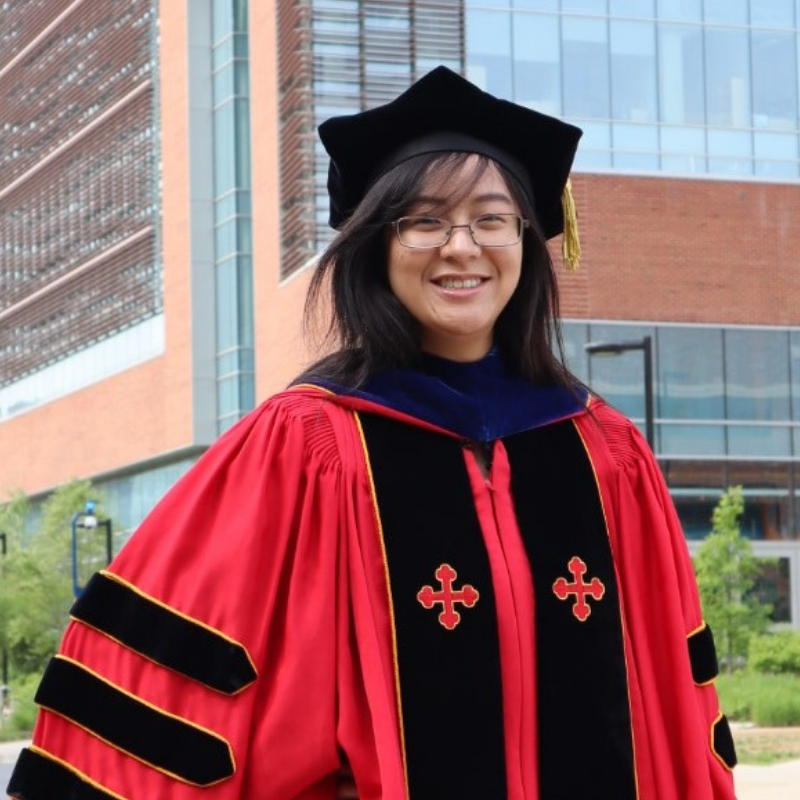
It’s inspired me to seek out projects beyond just my areas of interest and think about possible collaborations where my expertise could be applied to other biomedical applications that impact human health.
Justine Yu is an M.D./Ph.D. student in the University of Maryland School of Medicine (UMSOM) and Fischell Department of Bioengineering (BIOE). She recently completed her Ph.D. research in BIOE Chair and Professor John Fisher’s Tissue Engineering & Biomaterials Lab, where she focused on the development and use of novel biomaterials to repair wounded tissue.
She earned her B.S. in Biomedical Engineering with a concentration in cell and tissue engineering in 2014 from Johns Hopkins University. As an undergrad, she gained hands-on laboratory experience and participated in the International Genetically Engineered Machines (iGEM) competition. “These experiences really inspired me to want to continue doing biomedical research after graduation,” explains Justine. “I think having this engineering background is really unique, as it allows you to learn about the current advances and limitations in the medical field and also apply engineering design principles to develop innovative solutions to address them.”
Following her undergraduate career, Justine completed two years of medical school at UMSOM before beginning her research in BIOE. After completing a summer rotation in a UMSOM Division of Transplant Surgery lab working with mesenchymal stem cells (MSCs), Justine reached out to Dr. Fisher to pursue similar research opportunities in his lab. Justine began working on a project involving MSCs in 3D printed scaffolds for cartilage repair. “From there, I decided to stay in the Fisher Lab and explore immune-driven wound healing responses to implanted biomaterials,” says Justine.
She was awarded an A. James Clark School of Engineering Dean’s Doctoral Student Research Award for her project “A Nanocomposite Hydrogel for Stromal Cell-Derived Factor-1 Alpha Delivery and Modulation of Macrophage Phenotype for Skin Tissue Regeneration,” and completed her Ph.D. in spring 2021. Her Ph.D. project focused on the controlled delivery of a chemotactic factor to promote wound closure and skin tissue regeneration by recruiting host macrophages and stimulating them towards an anti-inflammatory, pro-healing phenotype.
Working towards an M.D./Ph.D. during a pandemic has given Justine a deeper appreciation for “the tremendous, multidisciplinary effort of biomedical researchers and clinicians to develop effective technologies targeting a serious, real-world problem,” she says. “It’s inspired me to seek out projects beyond just my areas of interest and think about possible collaborations where my expertise could be applied to other biomedical applications that impact human health.”
Top